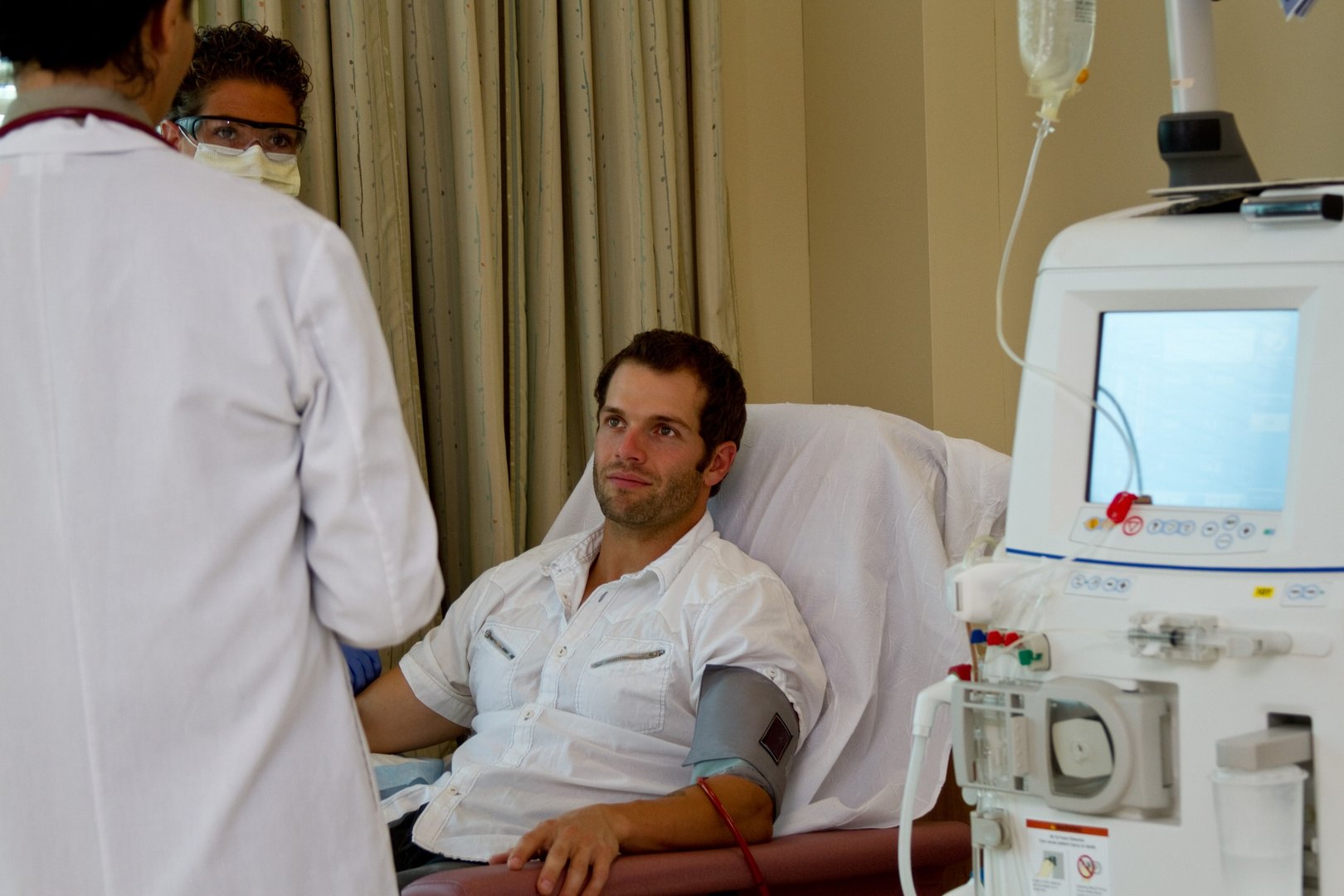Cyprus has double the number of new patients starting dialysis each year
Cyprus records one of the highest numbers in terms of its population in new patients requiring kidney dialysis every year in Europe, according to the data of the European Renal Association (ERA).
In ERA’s latest published report (2020), which collects data on renal replacement therapy from some 47 countries, Cyprus has double the incidence of new patients per million population (pmp) that start dialysis each year.
In the report for 2020, which compares the incidence in the countries that provide data, the adjusted incidence for Cyprus was 260pmp whereas the mean adjusted for all countries was 138pmp. Only Israel had a significantly higher number at 293pmp. In 2019, the mean adjusted for all countries was 149pmp while for Cyprus it was 261pmp.
Cyprus has been recording high numbers ever since data was first collected said Dr Kyriakos Ioannou, president of Cyprus Renal Association, who said the problem has a lot to do with “bad habits in general”, especially diet.
“Cypriots do not have a healthy diet, and this creates angiopathies that could affect the kidneys or the heart,” he said. Diabetes accounts for some 42 per cent of people needing dialysis and high blood pressure for 25 per cent. There were other reasons, but two thirds were down to diabetes and hypertension.
Rising life expectancy also plays a part, said Dr Elisavet Constantinou, the head of Medical Services and Public Health at the health ministry.
“With the average life expectancy at 84, even higher for women, there are more people with kidney problems, needing dialysis,” said Dr Constantinou. “When life expectancy was 65 there was not such a problem, but when it becomes 84 there will be more people with chronic illnesses.”
Currently, some 1,200 people need dialysis in Cyprus, considerably higher than the average in most countries, which is usually 0.1 per cent of the adult population. With an adult population of about 800,000, Cyprus should have had 800 dialysis patients.
The high number was putting public hospital renal replacement therapy departments under tremendous strain, but there are now private establishments offering dialysis. According to Dr Constantinou there are now two in Paphos, two in Nicosia and a third on the way, one in Limassol and one set to open in Larnaca next year.
This has eased the strain on the public hospitals although difficulties remain. Famagusta general hospital, for example, has only one nephrologist to look after 50 dialysis patients, leaving many of them with inadequate care. Okypy has advertised for a second nephrologist many times but received no applications. A doctor from another hospital is sent to Famagusta when its doctor has to be away, Okypy has said.
Having the dialysis equipment without an adequate number of nurses and doctors to look after the patients is not the ideal situation, said Dr Ioannou as the quality of the care suffers. He would like to see a good practices ratio set out.
“If you have three doctors for 80 patients it would be good practice but when they cover 200, the care will not be as good,” he said.
Dr Constantinou, who is also president of the transplant council, thinks more kidney transplants would ease the problem, and offer quality of life to patients. She acknowledged that reducing the incidence of diabetes was very important, but kidney transplants were the way to improve the quality of life of sufferers.
Cyprus does not score well on the ERA database with regard to transplants. In 2020 it had 15pmp when the average of the 47 countries was 28.
Although there is still much work to be done to on the donor front, Dr Constantinou said the ‘pair exchange kidney transplant’ introduced this year could increase the number of transplants. This allows a kidney patient to find a donor, who is incompatible, but is matched with another pair of donor and sufferer, who are also incompatible.
A bilateral agreement for such exchanges was recently signed with Israel and work is being done on having a similar agreement with Greece, Constantinou said.
There were two ‘pair exchange kidney transplants’ in Cyprus this year. One involved two pairs from Cyprus and the other pairs from Cyprus and Israel.
“The number of kidney transplants has also increased,” said Dr Constantinou. Last year there were 17, whereas in 2023, before the first six months there were 15 kidney transplants.
There was no age limit to people that would be eligible for a transplant, although, after a certain age, according to one nephrologist, a transplant may increase the quality of life but not quantity of life.
Dr Ioannou believes the introduction of Gesy could also help reduce the number of people requiring dialysis in the longer term.
“With Gesy every person now has a personal doctor, who will advise their patients on how to have a healthier lifestyle,” said Dr Ioannou, who believes there should also be health educational programmes at schools.
People made aware of the health risks of poor diet are likely to take better care of themselves.







Click here to change your cookie preferences